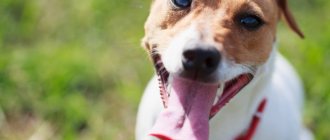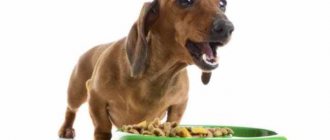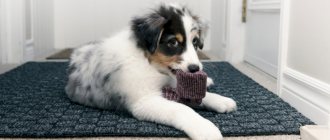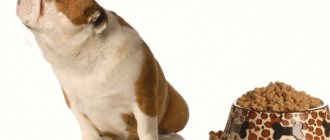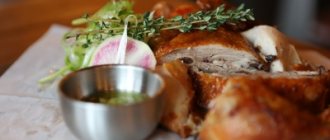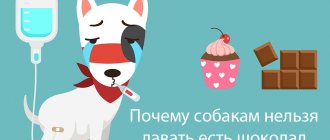In this section we are going to discuss all the different degrees of lack of appetite that the Yorkshire Terrier breed can develop.
Since this tiny dog typically weighs between 1.2 and 3.2 kg as an adult, any weight loss will have an impact on the health and well-being of your Yorkie.
This type of problem will affect Yorkies of all ages:
- Puppies - Weight loss during the puppy stage - usually a rapid gain - in both weight and height - can become a serious problem.
- Adults - Typically active adults with a lack of appetite also often exhibit behavioral problems. Whether it's nervousness, withdrawal, aggression, or something else, not eating can disrupt your normal daily routine and, without intervention, affect your overall health.
- Seniors – Older dogs (8 years and older) can suffer greatly from loss of appetite. This is a time when a dog needs a healthy diet, as well as additional nutrients and supplements for an aging body... so when an older Yorkie refuses to eat, it can quickly develop into other problems, even affecting the immune system.
Causes
Like many miniature decorative dogs, Yorkshire terriers are often spoiled with treats, capricious, and try to manipulate their owners with pitying glances.
Therefore, these picky eaters will not eat everything that is offered to them. Often the problem of poor appetite appears in small dogs that have free access to food, because... satiety sets in. The spirit of competition, as when living among one's brothers at an early age, is absent. But there are other reasons. Why a Yorkie refuses to eat, there are many reasons, both easily eliminated and more serious ones that require the intervention of specialists. There are psychological and physiological reasons for this behavior. Let's look at the most typical cases.
Increased anxiety
Some dogs become anxious due to loud, frightening, panic-inducing sounds: fireworks, thunderstorms, gunshots. There is no question of food in such situations: the animal is scared and trembling. This condition quickly normalizes when the irritating factor disappears.
Refusal to eat from a bowl
The decrease in appetite is associated with the frequent habit of owners of giving food to their pet out of a bowl, from their hands, because a Yorkie is a small dog and needs very little to be satisfied. If during the day the pet was fed from the common table, he may well refuse his food. The dog gets used to this type of food, does not eat from the bowl and waits to be fed this way again. There is no need to force feed the animal - it will ask for food when it gets hungry.
Refusal of dry food
If your Yorkie won't eat dry food, what should you do? When a dog is tired of monotonous food, has become tired of the taste, and no longer wants to eat granules, veterinarians advise switching the animal to natural products. The choice here is huge, and when you get used to porridges with meat, you change the boring cereal for another. The food must be fresh, otherwise the dog may not only refuse to eat such food, but also get sick after tasting a spoiled product.
Poor appetite occurs due to the switch to a new dry food made by another manufacturer, the taste of which is not to the dog’s liking.
Poor appetite during estrus and pregnancy
Hormonal changes during pregnancy, which can result in a dog vomiting, are a common reason for refusing food.
The first estrus is a severe stress for the dog’s body, a period when it becomes lethargic, sad, capricious or aggressive, and loses interest in life. Yorkie doesn't eat well after being in heat. Changing food habits is normal during these periods.
When an attractive female in heat appears in the neighborhood, she can discourage the male from eating for several days.
A change of scenery
Parting with the owner, moving to a new place of residence, exhibitions - cause despondency, depression, melancholy, and can lead to a complete refusal to eat.
Health reasons
There are a number of reasons indicating a pet's health problems. If your dog doesn’t eat well and sleeps all the time, you should watch its behavior more closely.
Why won't my Yorkie eat? What reasons influence the deterioration of appetite:
- inflammation of the gums and dental diseases, oral injuries;
- diseases of the digestive organs (ulcers, gastritis, tumors);
- parasitic and infectious diseases;
- painful sensations, while the animal hunches over, sleeps for a long time, is inactive, its limbs tremble when moving;
- renal failure;
- the effects of certain medications.
Yorkshire Terrier Dental Diseases
Problematic teeth are a breed feature that makes itself felt even in childhood.
False polydentia is a delay in the loss of primary teeth. That is, with permanent teeth, milk teeth often remain, especially fangs.
Yorkie's teeth grow in two rows, which can disrupt the bite and integrity of the gums; develop tartar. Not to mention that the dog’s teeth are unlikely to remain perfectly straight.
What to do : this genetic pathology is recognized after 8 months and requires surgical removal of baby teeth; the operation is performed under anesthesia.
Even the youngest Yorkshire Terriers suffer from plaque that develops into tartar The reason is the increased content of mucin in saliva.
Experts also talk about the anatomical predisposition of Yorkie jaws to the formation of caries. One way or another, among the consequences are various gingivitis, periodontitis, periodontal disease and stomatitis.
Due to periodontal disease, for example, a Yorkshire Terrier's teeth can fall out as early as two years of age.
What to do : Let your Yorkie chew on hard vegetables, special bones and dry food. Brush your dog's teeth with a soft brush and toothpaste to prevent tooth loss; wipe your gums with calendula tincture. Constantly inspect your pet's mouth and if there are noticeable dental deposits or defects, go to the hospital.
What to do
If your Yorkie doesn't eat well, what to do in this situation, only a veterinarian can help.
What symptoms require immediate consultation with a specialist for a thorough examination:
- fever, high temperature;
- refusal of water or increased thirst;
- along with ignoring food, giving up favorite treats for more than 7–8 hours;
- lethargy, apathy or causeless aggressiveness;
- the dog whines and does not allow you to touch its belly;
- prolonged, frequent estrus, changes in the nature of discharge, unpleasant odor;
- yellowness of the skin and mucous membranes;
- change in color of urine, feces;
- constipation or loose stools;
- Frequent regurgitation, the pet vomits yellow liquid profusely.
If a diagnosis has been made, tests have been taken, and a disease has been identified, the doctor will prescribe appropriate treatment and special medicinal food.
If there is no redness of the gums, tartar, damage in the dog’s mouth, and no wounds on the body, and the doctor has not found any serious health problems, then the reasons for refusing to eat are not so dangerous and can be decided by the owner himself.
Ignoring regular food, but actively eating treats, natural behavior, cheerfulness and cheerfulness of the terrier is a reason to start correcting the eating habits of your four-legged friend.
What actions to take if your Yorkie is not eating well:
- Do not focus on this problem, but start choosing the right, balanced diet, focusing on the benefits and taste preferences of the pet.
- Choose one specific type of food: natural, dry or wet food (canned food), follow a meal schedule.
- Reduce the portion of food by increasing the interval between feedings.
- You can get a second Yorkie, competition will awaken the spirit of rivalry, everything will be eaten faster.
- The dog must be taught to feed properly from childhood, this will prevent problems with appetite disorders.
- Adhere to the correct feeding regimen. If there is food left in the bowl or it is untouched, after 20 minutes you need to remove it before your next meal. When your pet gets hungry, it will happily eat the contents and over time it will acquire the habit of eating on a schedule.
- Snacks between meals are not allowed; rewards in the form of treats are allowed only during animal training.
- There is no need to force or persuade your dog to eat; this can lead to a complete loss of appetite, aggravating the situation.
- During walks, provide your pet with the opportunity to actively move.
- Under no circumstances should you give alcohol: vodka or wine to increase your pet’s appetite; you can cause burns to the mucous membranes and poisoning; it’s better to spend more time with your dog in the fresh air.
- After a walk, look for splinters or ticks on the dog - this can bother the animal, cause anxiety, and malaise.
- You cannot purchase food for your Yorkshire Terrier in questionable places. Pet salons and specialized stores offer a wide range of certified products that protect your pet from unnecessary problems.
We have presented you with a large list of answers to the question why your Yorkie won't eat. Knowing them, it will be easier for you to navigate and decide what actions to take. To cope with your baby's whims, listen to our advice. Be attentive to your pet, do not ignore changes in its behavior and condition. Inaction and loss of precious time can deprive you of your beloved pet.
Dogs of this breed are very picky eaters and will not eat just anything. There are certain rules that must be followed when preparing a Yorkie's diet. Sometimes the owner may notice that his pet has begun to eat even his usual food poorly. What could be the reason?
Yorkshire eye diseases
*We will partially answer the questions of what to do if your Yorkie’s eyes are festering or running .
Yorkies have been shown to have a predisposition to several retinal pathologies.
As a rule, these are hereditary things:
- spontaneous detachment;
- degeneration (when retinal cells die);
- dysplasia (when the retina develops abnormally).
These serious diagnoses (and any of them can lead to partial or complete loss of vision) are made by ophthalmoscopy, but retinal diseases can be noticed in the early stages.
What to do : if your Yorkshire Terrier's vision in the dark has become worse, his pupils do not constrict even in the light, or the fundus of the eye is slightly glowing gray, run to the doctor.
Dry eye is another problem for Yorkies.
The lack of fluid is provoked by a genetic disorder of the lacrimal system, in which the lacrimal canals narrow or become completely impassable.
Due to delayed outflow, the lacrimal gland often becomes inflamed. And insufficient moisture can affect the cornea or conjunctiva.
Cataracts - white and glaucoma - green clouding of the eyes of Yoriki are usually obtained from their owners; Sound scary? And they get it in the literal sense: with shampoo or a comb in the eye.
What to do : Gently groom your Yorkie's coat on his head and face. For any eye pathologies, go to a veterinary hospital.
Why doesn't my Yorkie eat well?
Yorkies differ from other dog breeds in their small size. They, like other decorative dog breeds, are very picky when it comes to food. Sometimes it happens that Yorkies do not want to eat what their owner offers them. There are several reasons for this:
- the Yorkie does not like the food that is offered to him (this is possible if the owner decided to buy food from a different manufacturer for the pet, changed the ingredients in the food that he prepares for the dog himself, or the food is not fresh);
- Yorkie eats up its portion (due to their small size, these dogs do not need a lot of food, so if they are fed from a common table, they may refuse their food);
- the female Yorkie is in heat (during this period, dogs’ appetite usually decreases);
- the Yorkie puppy is teething (during this period, feed the dog cool, non-solid food);
- Yorkie has health problems. If you notice your pet has an appetite disorder, first of all make sure that he is not fed from the common table. Don't force your Yorkie to eat. When he gets hungry, he will definitely eat. During walks, offer your pet active physical activity. Always serve your dog a fresh portion and do not keep it in a bowl between meals. To prevent your Yorkie from having problems with appetite, set a feeding schedule.
Causes of poor appetite related to your dog's health can be different:
- problems with teeth or gums (untreated or broken teeth, gum inflammation);
- painful sensations that can be identified by such signs as: breathing problems, longer sleep, decreased activity, the Yorkie hunches his back when walking, his limbs tremble;
- diseases of the gastrointestinal tract (tumors, ulcers);
- renal failure;
- reaction to certain medications;
- infectious diseases;
- parasites.
If, along with loss of appetite, you notice symptoms in your Yorkie such as fever, problems with stool (diarrhea or constipation), vomiting, yellowing of the skin and mucous membranes, then a visit to the veterinarian should not be postponed under any circumstances!
A dog is a man's faithful friend. For every owner, the health of their pet is always an important aspect of its proper maintenance. When a dog is healthy, not only the owner is happy, but also the pet itself. There are also extremely incomprehensible moments when a healthy dog refuses to eat. It is important to determine whether it is a disease or not.
Yorkshire Terrier ears
Ear diseases are always difficult for humans, let alone small Yorkies.
With their increased sensitivity, a draft is enough and inflammation of the middle ear is guaranteed.
What to do : dress your dog warmly for walks, dry it thoroughly and comb out the coat after any wetness. Don't keep your Yorkie in warm conditions - harden it: take regular and active walks in windless, not very cold weather. Be wary if your Yorkie scratches his ears or shakes his head strangely. Monitor ear odor and discharge. And don't self-medicate.
Another common problem is ear mites, which small Yorkies are more susceptible to than larger dogs.
What to do : get a vaccine for prevention, go to a clinic for treatment.
Looking for a reason
If your beloved pet begins to refuse food, then first of all you need to observe the animal for some time in order to identify the causes and methods of dealing with them.
Nothing serious
Reasons for refusing to eat for which you should not sound the alarm:
- Fasting day. Dogs usually give their stomach a fasting day three times a month. Monitor your pet carefully and you will soon know when this day comes so you don’t have to worry.
- Stress. A fairly common cause of loss of appetite in an animal. Long journeys from one place to another can cause a stressful situation, and your pet will eat less for a while. In this case, pay more attention to your pet, spend time with him, try not to leave him alone for a long time. The problem will be resolved soon.
- Hot weather. In particularly hot weather, you should also not expect your pet to have huge food cravings. During this time, most dogs eat as much as they need. The owner should not panic.
- Demand for more delicious food. There are also dogs that, by fasting, get more tasty food from their owner. This is especially true for dogs that eat store-bought food. Due to improper storage, food can erode, which is why dogs go hungry, demanding other food from the owner.
For store-bought food, proper storage is especially important. In order for your pet to eat it happily, you need to adhere to all storage conditions indicated on the package.
Let's sound the alarm
Unfortunately, loss of appetite can also be a consequence of a serious illness. In this case, you should contact your veterinarian. The specialist will conduct an inspection and only after that will it be known whether the owner should worry or not.
You should contact your veterinarian urgently in the following cases:
- Your pet usually eats with appetite, but suddenly stopped eating. The cause may be a disease of your pet's digestive system. A dog is an active animal. During a walk, you may eat something extra, which will trigger the disease. The main symptoms are vomiting and loose stools.
- When worms appear, the dog's appetite also decreases. Lethargy is added to the above symptoms. When parasites appear, an animal's fur usually becomes duller.
- If your pet has a poor appetite, you should actively examine its body for the presence of ticks. If the owner cannot carry out such a procedure himself, then it is necessary to go to a clinic where they will help the animal. Ticks carry many diseases that are extremely life-threatening to your pet.
- Bad or broken teeth or oral injuries can cause dogs to lose their appetite. Contacting a canine dentist would be the right decision, because prolonged fasting as a result of diseased teeth can provoke a number of other diseases.
- As a result of an allergic reaction, the source of which can be anything, the animal's breathing may be difficult. Of course, at such a moment the dog will have no interest in food. In this case, immediately consult a doctor to identify the allergen and help your pet in time. After treatment, be sure to feed the dog hypoallergenic food.
The veterinarian will be able to correctly diagnose and prescribe treatment for your four-legged friend. We recommend that you prepare for this stage in advance and learn how to properly give your dog medicine.
It is important to note that a healthy dog should have a good appetite, and the food should not only be tasty, but healthy and of high quality, and contain the vitamins and minerals necessary for the animal’s body.
The dog's daily life is also an important factor. How active does she spend her day? Many dogs need long walks so they have a good appetite. Shepherd dogs, for example, in the absence of exercise, reduce their food intake. Thus, if you keep a shepherd in an apartment and walk it once a day for a short time, you should not be surprised at your animal’s lack of appetite. Give it more attention and the problem of malnutrition will disappear in an instant.
Dogs usually have an excellent appetite. Many of them eat as much food as is available to them and gain weight well. Often, domestic dogs weigh even more than is allowed by the breed standard or the characteristics of their constitution. But in some cases, pets need increased nutrition, so any dog owner needs to know how to fatten a dog if necessary.Possible health problems when refusing food
A situation where a pet refuses food for several days can be a signal of dangerous diseases. Fasting for two days indicates the need to take the animal to the veterinarian on the third day.
Dental problems and oral diseases
According to statistics, dental problems are present in more than sixty percent of dogs over the age of three years. The main cause of disease is lack of attention to oral hygiene on the part of owners. At the same time, the dog often refuses food due to pain or the inability to grind food.
The most common oral diseases in dogs are:
- periodontitis;
- periodontal disease;
- tartar;
- gingivitis (or inflammation of the gums);
- caries;
- stomatitis;
- enamel dysplasia;
- tooth fractures;
- oral injuries;
- sialadenitis;
- malocclusion.
Ear diseases
Dog ears are extremely susceptible to inflammation and injury. You should carefully monitor their condition in your pet, clean and inspect them regularly. Ear diseases can make the animal lethargic and deprive it of appetite.
The most common problems:
- otodectosis;
- otitis;
- eczema;
- tick bite;
- auricular hematoma.
Chemotherapy for cancer
If certain symptoms appear in your animal, you should immediately contact a veterinarian and have your pet diagnosed for cancer. If diagnostics confirm the presence of a cancerous tumor in your dog, your veterinarian may recommend chemotherapy.
Gastrointestinal diseases
Dogs, like other predatory animals, suffer from diseases of the gastrointestinal tract. Stomach pain can lead to decreased appetite.
The most common gastrointestinal diseases:
- poisoning;
- blockage of the pharynx and esophagus;
- gastritis;
- peptic ulcer;
- intestinal obstruction;
- gastroenteritis;
- colibacillosis;
- abdominal dropsy.
Foreign body
While learning about the world around them, dogs often try to chew on all sorts of objects. Many of these foreign bodies pass through the intestinal tract without incident or consequences for the dog's body, others can become stuck and cause problems.
Some of the most common foreign bodies that cause problems in a dog's gastrointestinal tract are:
- corn cobs;
- sticks;
- bones;
- threads;
- balls;
- fishing hooks;
- stones;
- toys;
- socks/stockings.
The clinical signs observed vary widely and depend on the degree of obstruction and the location and type of foreign body. If the dog does not eat, trembles, breathes frequently and heavily, immediately contact a veterinarian, as a foreign body may have entered the body.
Pain syndrome
Pain can cause complete indifference to food. Unfortunately, it is not always possible to easily determine from a pet’s behavior that it is in pain. Symptoms are usually unclear, especially if the dog tends to hide when sick.
However, there are a number of signs by which you can determine that your pet is experiencing pain:
- The dog whines or growls more often. If your dog is acting louder than usual, you should be wary.
- Limping when your pet puts pressure on the area is an obvious sign of pain.
- Dogs in pain lick their paws constantly in an attempt to calm themselves. When animals are in pain, one of their first instincts is to clean the wound by licking it. Even if there is no wound, animals will still lick the area in an attempt to get rid of the pain.
- Many dogs will sleep more when they are in pain because they are trying to heal that way or have difficulty moving around. There is a loss of appetite, a change in the way of eating and the amount of water consumed.
- Changed breathing signals a problem. Breathing is shallow and frequent. These may be signs that your pet is having trouble breathing.
- If your dog is in pain, the pain may prevent him from sitting or lying down. You should be wary when your pet is sitting, lying in an unusual position, or cannot stay still. For example, over and over again he tries to sit or lie down and almost immediately gets up and moves around again.
- Aggressive behavior is a sign of pain. When animals get injured, many of them go into protective mode and try to force their owner to stay away. The pet subconsciously fears that the owner will cause pain. An obedient dog will suddenly growl, lay its ears flat against its head, and even bite if its owner does something that bothers it. Typically, aggressive dogs sometimes exhibit the opposite behavior.
Infectious viral or bacterial diseases
Infectious diseases caused by bacteria are the most common in dogs. Most of them can seriously affect the dog's condition and appetite.
Common bacterial diseases that affect dogs include:
- Bortadella or Kennel Cough. An upper respiratory infection, usually caused by Bordetella bronchiseptica.
- Leptospirosis. A bacterial disease caused by a spirochete (a type of bacteria) is spread through contact with a dog's urine. Symptoms include vomiting, decreased urination, dark urine, and fever.
- Spotted fever is a tick-borne disease. The bacteria Rickettsia rickettsii is carried by ticks and transmitted to the dog through a bite. It is a contagious disease. Signs and symptoms in dogs include lethargy, depression, high fever, loss of appetite, cough, conjunctivitis, difficulty breathing, leg swelling and joint and muscle pain.
Viral infections in dogs are often easy to treat, but some can be fatal.
Here are some of the most common viral infections that you should protect your dog from:
- Parvo is a viral infection that affects dogs. Although the disease affects pets of all ages, puppies are more susceptible to the disease. The contagious infection is spread through contact with the dog's saliva, vomit and feces.
- Distemper is another viral infection. The virus is related to human measles and is highly contagious. Young puppies and older dogs are much more susceptible, but an adult dog that has not been properly vaccinated can become infected.
- Canine hepatitis is another common viral infection in dogs. It mainly attacks the liver. The disease rarely affects older animals. Most dogs become ill before one year of age.
Post-traumatic shock
Since dogs cannot explain to their owners what they are thinking or experiencing, it is necessary to try to infer these things from their behavior.
Behaviors that may indicate post-traumatic shock:
- the dog does not walk, resists when trying to lead it somewhere;
- fear and urination during greeting;
- unmotivated aggressive behavior;
- the paws give way, the dog staggers or trembles;
- the pet is not sleeping;
- the dog is afraid of people.
The factors influencing appetite in dogs are discussed in the video from UA DOG.
More about sizes
Unfortunately, there are a huge number of people who misinterpret breed standards and are convinced of the existence of such sizes as:
- super - mini: up to 1.5 kg;
- mini: 1.4 – 2 kg;
- standard: 2 – 3.1 kg. This is not a subspecies, but a deviation from the norm.
Small dogs have many developmental defects, bitches are not able to reproduce, and the number of years they live is reduced to a minimum - only 3-4 years.
Such individuals have an incorrect bite, drooping ears that do not stand up, and in male dogs the testicles do not form. An incorrectly formed skeleton and head will bring many problems. The bitch will be unable to develop properly and will have no prospects for breeding.
The worst thing is that, in pursuit of fashion, unscrupulous breeders deliberately underfeed puppies so that they supposedly have a mini size. Be careful, a mini Yorkshire terrier whose weight does not meet the standard is a deviation.
For clarity, the weight of the Yorkshire Terrier and its norms, a table that will help you figure it out.
Remember that every dog is individual, just like a person, weight gain may vary slightly, but the end result is always the same. If you suspect a shortage, contact your veterinarian for advice. Problems may be with the diet or individual characteristics of transferring certain components.
When should you see a veterinarian?
Problems such as colds, viral gastroenteritis and even food poisoning are especially dangerous for puppies because they have weak immunity. Delay often ends in death. If a small family member refuses to eat or walks around lethargically, do not take risks and show him to the veterinarian.
Another reason to see a doctor is the duration of the hunger strike and apathy. It’s bad if the painful condition lasts longer than a week.
Also, the dog should be taken to the veterinarian if the following symptoms are detected:
- alternating constipation and diarrhea;
- blood in the stool;
- prolonged vomiting – more than 2 days;
- dullness and hair loss;
- dryness and yellowness of the skin;
- inflammatory process in the oral cavity;
- purulent discharge from the eyes;
- limb spasms;
- change in color of stool and urine;
- a sharp change in character.
In the situations described above, waiting and self-medication can cost you your health and even the life of your pet. Take pity on your four-legged friend and contact a veterinarian.
How to avoid weight problems in Yorkies?
To prevent your Yorkie from becoming obese, you need to monitor his diet. You can feed your pet dry food, specialized ready-made canned food, or food you prepare yourself. Dry food has many advantages:
- it contains all the vitamins and microelements necessary for dogs;
- it does not need to be prepared, which saves time and is very convenient when traveling;
- feed manufacturers produce products suitable for a specific breed.
Despite the above advantages, dry food also has disadvantages. Eating this way can lead to stomach problems. If you feed your pet dry food, always make sure he has fresh water.
An alternative to this food can be ready-made canned food.
Canned food is, of course, quick, tasty and convenient, but can lead to the formation of tartar, which can be recognized by bad breath. You can prepare food for your Yorkie yourself. At the same time, make sure that your pet does not eat spicy, fatty or sweet foods. Forbidden for Yorkies are raw river fish, sausages, sausages and smoked meats, white bread and legumes. Yorkshire Terriers must eat raw or boiled beef, vegetables, cottage cheese, dairy products, and egg yolk. Special vitamin supplements must be added to your Yorkie's self-prepared food.
To make your pet feel good, organize a diet for him. Adult Yorkies over ten months of age should eat twice a day. In the first two months of life, puppies are fed six times a day, at 3-4 months - five times, at 5-6 months - four times, at 7-9 months - three times a day. You can read more about how to feed Yorkshire Terrier puppies in this article.
A properly organized regimen and diet for your Yorkie will be the key to his good health and well-being.
What do Yorkies get sick of?
Yorkies are healthy enough not to be considered sickly dogs.
However, after talking with veterinarians and owners of Yorkshire terriers, and studying a lot of literature, we received a rather impressive list of possible breed and other diseases.
Mostly these “others” are a consequence of the size of the Yorkie.
By the way, one of the first places is occupied by the traumatic nature of Yorkies due to human negligence, so the breed is not suitable for all children.
And yet, most often, sensitive Yorkies suffer from colds and allergies to everything.
We want you to find this article useful and may your pet be healthy. But “forewarned means...”. We arm in general.
Your dog doesn't eat well: how to increase your dog's appetite?
There are several actions that can be taken to improve a pet's appetite if the dog is not eating well. All these methods are individual. Correctly, it will take into account the character, breed, age and physical capabilities of the animal. It is necessary to take care of security measures in advance.
- For large breeds this is physical activity. A dog may lose interest in food from lack of exercise. It is possible to restore appetite: it is recommended to play with the dog more often, take long walks, long-distance jogging, high jumping, and swimming in the river. You should arrange a bike ride - the dog running near the bike will have a positive effect on the metabolic process in the pet’s body.
IMPORTANT: When performing physical exercises, it is necessary to monitor the general well-being of the dog - give moderate loads and then increase them. Do not overly exhaust your dog with activity - exaggeration can have the opposite effect, and a tired dog will refuse to eat again.
Here it is important to rely on the experience of guessing your pet’s mood and his willingness to be involved in a game or a walk.
- The second, no less effective way to increase appetite is a fish diet. This method will work well if the dog’s food previously had a low content of fish and seafood. By adding a few pieces of small fish to the standard meat menu, you can increase not only the dog’s interest in food, but also the amount of nutrients in the body. You can give fish as a separate dish - before meals, or by mixing it with porridge.
Fish diet
- In addition to individual menu components, you can change the entire main diet if the dog does not eat it. A dog can ignore monotonous food - having been fed a certain type of porridge for a long period, it thus makes it clear that the pet is tired of such cuisine. It is recommended to change the diet: replace buckwheat with rice, wheat cereal, an assortment of different types of cereals is good. Changing the diet must be done carefully - offering the dog a small portion of the new product. The same goes for varieties of meat, fish and vegetables. A variety of foods consumed will improve your dog's intestinal motility and help avoid heaviness in the stomach and refusal to eat.
Diversify
- Psychological method - designed for the dog’s natural instinct to protect prey from competitors. This method does not require special training, is quite effective, is widely used in nurseries and is popular with many dog breeders. Dog trainers recommend artificially creating a situation of competition for a bowl of food, thereby evoking an animal instinct - the desire to defend the food and eat. It is necessary to demonstrate that another eater is vying for the bowl of food; it is good to use a second pet as an example - a cat, a dog. It is enough to offer a competing pet to eat from the plate of the refused dog - the instinct to protect the prey will work, and the dog will begin to take the bowl for itself so that the competitor does not get it.
- If there is no one to offer to eat from the bowl, improvisation by family members will help: after the dog is offered food, one of the family members should try to take the bowl; it will be good if you record the action with the command “I’ll take it.” Such manipulations will affect the dog and its interest in food. However, it is important to remember that some dogs can be quite jealous and aggressive in nature. The owner must control the dog’s behavior and stop attempts at aggression during the experiment.
Pick up your food
- Do not overuse this method and use it only when necessary. It is important to realize that dogs do not like to share prey and can punish the “offender”, therefore, using this practice, you should show the dog that the situation is under the control of the owner: do not tease the pet excessively and stop any attempts to attack a competitor with the commands “no”, “ ugh".
Loss of appetite in females during the period of estrus is a completely natural phenomenon that goes away at the end of the cycle. You should be wary if the situation has dragged on and the hunger strike continues even after estrus - this is the reason for a visit to the clinic. In puppies, refusal to eat can trigger the onset of teething - you need to make sure that the food is finely ground and has a soft consistency. Large breed dogs are most susceptible to changes in food preferences - this is their physiological feature. To normalize digestion, they require daily physical activity.
Reasons why dogs may lose weight
Not every owner has the opportunity to visit a veterinarian to undergo an examination and identify the problem, so it is possible to determine the options for weight loss using the following parameters:
- Perhaps the dog is feeding its own offspring? This means you need to pay special attention to nutrition, because as puppies grow, they begin to take more important substances from the mother’s body, thereby she begins to lose her own weight and underfeed the puppies.
- If a dog, in addition to weight loss, notices vomiting and poor appetite, it is likely that the dog may become the owner of worms. And they, as a rule, devour important elements of the body, thereby depleting it. It is urgent to start taking special medications, but before that, visit a veterinarian.
- There is such a disease as “dysbacteriosis”, if undigested food remains are noticed in the dog’s feces, then the cause is this disease. To treat it, there is a course of drugs, you need to visit a veterinarian.
- If the dog is young, then you should not fatten him, this can cause problems. Dogs often have an active metabolism and, therefore, gain weight no earlier than by 2 – 2.5 years.
- The reason may be that the dog is malnourished; to make sure that the owner is feeding the dog, you need to refer to special tables that indicate the required weight of the dog by gender and breed. Thanks to it, you can understand what weight is needed and how much the dog is behind or exceeding the indicators.
Yorkie food
At three weeks, puppies can already eat liquid; in the first month, semolina or buckwheat porridge is perfect for them. You can add a little sugar and raw egg yolk to this food - this delicacy is called bait. In the future, you should increase the number of feedings from one or two times to six. When babies reach one month of age, they must get used to a variety of foods. During the same period, they can be given meat little by little; it is advisable to use beef without veins as a treat. If we talk about cottage cheese, then it should be soaked in milk. Along with buckwheat porridge and finely chopped beef, you can add grated carrots and beets.
Weight and height of the Yorkshire Terrier
For a puppy at 3 months old, the diet should be slightly changed; you can add corn oil and fish oil to the main diet. The variety of meat assortment is also increasing; now, in addition to beef, you can offer chicken livers and stomachs. The diet can also be diluted with fruits, for example, at 2 months you can finely grate a green apple and add it to porridge. If your dog doesn’t like fresh apples, try offering dried fruits. A 4-month-old Yorkie puppy can also add walnuts to his diet, but first remove all solid particles from it and give it in small pieces, or grate it into the main dish.
What to do if your dog has lost his appetite for a long time
When a dog's appetite does not return for more than 3-4 days, this may be a sign of illness.
To make the diagnosis easier, you need to take the following steps:
- check the dog’s food, exclude from the diet all products whose quality and freshness are in doubt;
- observe the behavior of the pet, since many diseases are manifested by apathy or excessive anxiety of the animal;
- examine the pet’s oral cavity to identify problems with teeth or inflammatory processes on the mucous membranes;
- check the ears, since diseases of the auditory organs often cause pain when chewing food;
- If possible, measure your pet's body temperature.
Even if no visible problems were found, but the animal still does not eat, there is no point in postponing a visit to the veterinary clinic; it is better to seek professional help as soon as possible.
If the dog does not eat for more than 2-3 days, this is a reason to consult a veterinarian.
The dog has no appetite: a sign of illness or a natural condition
A completely healthy animal may refuse to eat for a short time, after which its appetite is restored.
Dogs can refuse food for a variety of reasons.
The reasons for this behavior may be the following factors:
- Hot weather. When the thermometer rises above 30 degrees, the desire to eat disappears not only in animals, but also in people.
- Taking vitamin-mineral complexes. Due to these funds, the animal’s body is saturated with necessary microelements, which can significantly reduce appetite.
- The period of sexual hunting. Poor appetite in a dog during estrus is a common occurrence; various hormonal processes occur in the animal’s body, due to which the need for food may decrease. In addition, when in heat, the pet is more concerned with satisfying natural desires and procreation than with gastronomic pleasures.
- Teething in puppies. Since this process is often accompanied by poor health, small pets may avoid eating for some time.
- Breed predisposition. Large breed dogs are much more likely to practice “therapeutic fasting” than small dogs. As a rule, the animal eats poorly for several days or refuses food altogether, after which the appetite returns to normal.
Dogs often refuse to eat on hot days or when they are in heat.
On a note. The situations listed do not require any measures to be taken to force the dog to eat. As a rule, appetite is restored almost immediately after estrus, teething or a decline in heat.
If your pet doesn't eat dry food
Dogs often like wet food, but it gets dirty and is more expensive than dry food, which is usually not a good choice for owners. Regardless of why you want to switch your pet to dry food, consult your veterinarian first. If the doctor approves your choice, you will need to slowly add dry food to wet food.
This will prevent your dog from getting stomach problems. During this time, it is recommended to eliminate any other food sources, such as human food or treats, so that you can evaluate whether the food is suitable for your dog or not.
What else can you do to make your dog willing to eat dry food?
- Change your diet slowly.
Switching your dog from wet food to dry food is not something you can do overnight. For best results and to avoid any digestive upset for your furry friend, take your time switching from one food to another. Although your dog may be resistant to the change at first, you can help him gradually get used to dry food. The way you present him at mealtimes will have a big impact on how he accepts the shift.
To enhance the flavor, you can lightly warm the croquettes in the microwave.
- Wet diet.
You can first mix the dry food with, for example, low-salt chicken or beef broth or a little tuna juice from a can, or regular canned dog food will also work. This will not only soften the food, but also improve the aroma and taste. To control the calories, you can use a mixture of warm water and broth or canned food.
- Warm water.
One way to make dry food more attractive is to add warm water. This will help to better reveal the taste and aroma of food and make it more appetizing. To begin, mix the food with just a few tablespoons of warm water and wait until the food is soaked. You can always add more liquid if you want the food to be softer - or if you want to mash it into a puree.
- Switch to higher quality food.
There are currently a huge number of different dry foods on the pet products market, which can vary significantly, including in quality. Super premium and holistic diets contain much more muscle meat and fewer carbohydrates than cheaper foods. If you've tried economy or mid-range dog food without success, try switching to a higher quality diet and experimenting with flavors until you find one your dog likes.
Remember that for some dogs, wet food is better than dry food. In addition, your veterinarian may recommend a raw diet or home-cooked diet if health conditions warrant it.
How to make a dog eat
Getting your dog's appetite back will largely depend on the underlying cause of the anorexia. Often, after solving this problem, the desire to eat food returns. Sometimes this may take several days and additional measures may be required. Depending on your dog's condition, your veterinarian may give an injection, tablet, or powdered food supplement to stimulate his appetite.
They need to be treated with caution, as they do not solve the problem - they simply make the animal want to eat. In some cases, if your pet is recovering or treatment lasts longer than a couple of days, doctors may suggest inserting a feeding tube (feeding tube). It goes into the esophagus so your dog can get liquid food through it. This is not forever - you just need to feed the dog until they start eating on their own.
If you are concerned about your dog's appetite, contact your veterinarian. Finding and treating the root cause is the best way to approach this situation.
Standard sizes
The official breed standard adopted by the ICF and RKF provides a list of basic criteria that the Yorkshire Terrier must meet. In it, in addition to the general appearance of the dog, its temperament, coat structure, color and other things, the dimensions are also indicated.
The standard does not have regulations regarding the minimum height of a Yorkie, but the maximum allowable figure is established - the height of a standard Yorkshire terrier at the withers should not exceed 25 cm. Most often, males grow up to 23 cm at the withers, females - up to 20 cm.
The height of the dog at the withers should coincide with the height at the croup.
Body length is also important for Yorkies, which must be measured from the withers to the base of the tail. According to the standard, the body of a Yorkshire Terrier should be square, which means that the length and height of the dog should be approximately the same.
The length of the body should not exceed the height of the front legs (an excess of even 2 cm is noticeable and unacceptable), ideally it should be 1-1.5 cm less, then the dog’s figure is considered well balanced.
It should be taken into account that only exhibition representatives of the breed are evaluated according to these parameters.
Expert opinion
Kozhevin Semyon Kirillovich
Expert dog handler.
Even before purchasing a puppy, you need to decide for what purpose it is being purchased - to participate in exhibitions or simply as a pet. If a show career is planned for your pet, then choosing a puppy must be approached with maximum responsibility, because... a pet-class puppy is unlikely to accurately meet all the criteria of the breed standard. However, it must be said that today the boundaries of the standard are quite blurred and a Yorkshire terrier with a weight and height much greater than the recommended one is not uncommon. All the indicators specified in the standard, by and large, only help judges at competitions decide which dog to give preference to.
How to “fatten” a dog
- A pet that eats ready-made food should be gradually switched to a special high-energy product, for example, for young and active dogs. Strictly follow the instructions for the food, make sure that the dog has access to water and do control weighings.
- Replace industrial dry food with canned food and follow the trends; if the dog has gained weight, then it has become “bored” of the monotonous diet. Consider the options of changing food to a better quality one or switching your pet to natural feeding.
- Do not combine dry food and “natural” food - over time, this leads to metabolic disorders.
- To help your dog quickly gain weight, introduce foods rich in B vitamins into the diet (B 12 is especially important) - liver, eggs, lean beef.
- If the weight loss is catastrophic, 2-4 times a week, as a “snack”, you need to feed the dog sugar-free baby formula, but be careful! Baby formulas contain a large amount of vitamins, it is important not to overdo it!
- No matter what you feed your pet, the food will not be fully absorbed due to dysbacteriosis. Examine your dog's stool for undigested residues, take a course of probiotics - it won't make things worse.
- Be sure to give your dog vitamins if he eats natural foods. You can choose the complex yourself or consult with a veterinarian by phone.
- Active dogs will not be harmed by energy supplements - a “shock” complex of substances that stimulate metabolic processes.
Causes of Yorkie's poor appetite
A Yorkshire Terrier may lose its appetite for a variety of reasons. The most innocent of them is that the dog simply does not like what is given to it. This can happen when the owner decides to change the brand of dry food or starts using other products to prepare natural food.
A dog's appetite decreases when it constantly misses food from its owner's table. Yorkies are not large dogs and do not need much food. Therefore, if she eats outside the bowl, then she may not look into her rightful vessel. An interesting effect occurs when a loving owner constantly persuades his pet to eat.
The dog gets used to this ritual from childhood and simply waits for it before eating. There are a number of reasons that are related to the dog’s health. So she will not eat if there are problems with the gastrointestinal tract - pain in the intestines or stomach, or painful sensations in the oral cavity. Also, appetite decreases due to various infectious diseases or the presence of protozoa or worms in the animal’s body.
What to feed your Yorkie: food or homemade food?
You should make a reservation in advance. If we mean food from the table, then such a diet will be absolutely harmful for any dog. When choosing what food to feed your Yorkie, you should choose one of three options:
- Dry food;
- Canned food;
- Natural food.
What to feed your Yorkie
Each type of food has advantages and disadvantages. However, do not feed your Yorkie too much protein food. Because this breed is prone to allergic reactions. The diet should be as balanced as possible.
Can a Yorkie eat chocolate and other sweets?
Chocolate is on the “black list” for absolutely any dog. Contains theobromine. This substance acts on the body of a four-legged friend like real poison. You should also absolutely not give your Yorkie sweets. There is a risk of diabetes.
Can a Yorkshire Terrier eat berries?
It depends on what berries we are talking about. Grapes, raisins, and black currants should not be given to dogs. You can treat your pet to cherries (without pits), mashed gooseberries, and strawberries.
Can a Yorkshire Terrier be given fruit?
You can give apple pieces by removing seeds, peaches, and apples.
Can a Yorkshire Terrier eat cheese?
Cheese is considered a healthy product for all dogs. Given the tiny size of the Yorkie, this product is given in very small quantities.

